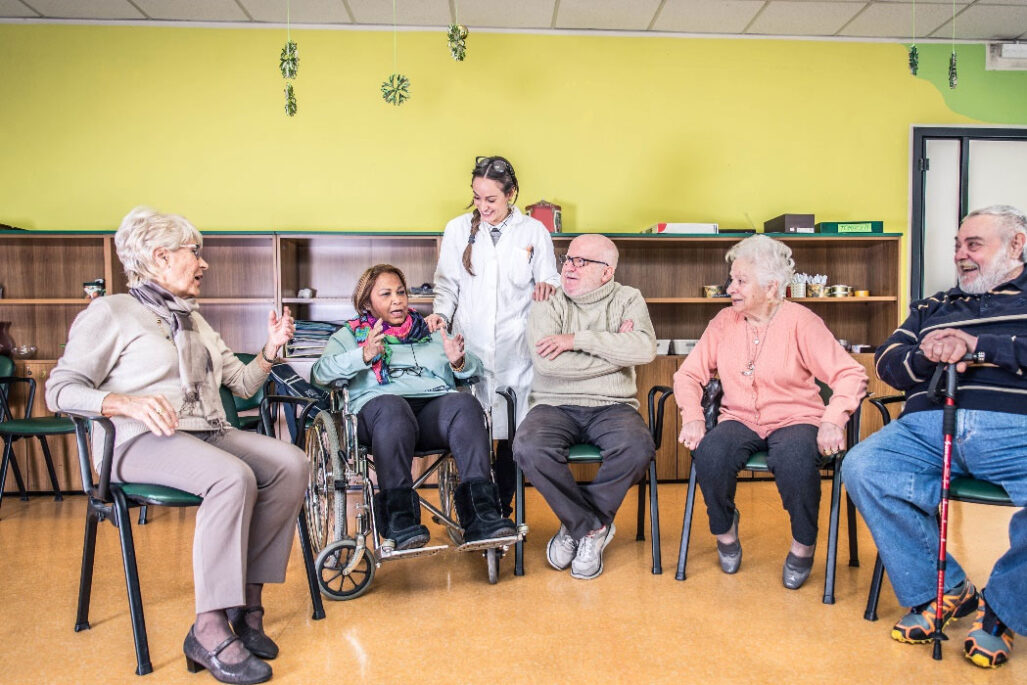Columbus, Ohio is perhaps most known for attracting young adults thanks to it being the home of Ohio State University, one of the largest universities in the country, as well as a booming tech industry, but it’s also a city that can likewise prove to be especially attractive and beneficial to older adults.
Located in central Ohio along the Scioto River, Columbus is the state’s capital and the second most populous city in the entire Midwest after Chicago. It enjoys a diverse economy thanks to it being home to the Battelle Memorial Institute, the world’s largest private research and development foundation; Chemical Abstracts Service, the world’s largest clearinghouse of chemical information, and the headquarters of no fewer than six Fortune 500 companies.
Along with economic stability, Columbus also sports a vibrant arts and culture scene, a wonderful variety of nature trails, a thriving culinary scene, and an abundance of rich history. It’s a city with four distinct seasons, however the winters tend to be mild. This allows seniors to experience the beauty of the region all year round as its landscape changes with the seasons.
Another factor that makes Columbus a great place for older adults is its quality healthcare networks, which include several specialized facilities dedicated to maximizing senior health and wellness. It can also be financially beneficial for seniors since Social Security retirement benefits are fully exempt from income taxes in Ohio, and the cost of living is 10% lower than the national average. This, coupled with the city’s very good selection of senior housing options, including many low-cost apartment communities for seniors, make Columbus a tough city to beat.
In this guide, you will learn more about low-income senior housing in Columbus, including:
- Additional Services for Low Income Seniors in Columbus, OH
- How to Find Low-Income Housing for Seniors in Columbus, OH
How Does Columbus’ Low Income Senior Housing Programs Work?
Affordable senior housing programs in Columbus, OH provide rental subsidies to low-income seniors, so they can live in comfortable, safe, and clean environments. These programs have varying guidelines for eligibility, but they all rely significantly on the income of the applicants.
The low-income senior housing programs available in Columbus, OH include:
- Subsidized Senior Apartments
- Tax Credit Apartments for Low Income Seniors
- Congregate Housing Services Program (CHSP)
- HUD Section 8 Housing Choice Vouchers
Subsidized Senior Apartments in Columbus, OH
Subsidized senior apartments allow the renter to pay approximately 30% of their income towards rent. These apartments have general income requirements and most of them take into consideration a senior’s medical expenses when calculating the rent. These apartments tend to be in high demand and it’s not uncommon for there to be waiting lists to get into these communities.
Low-income seniors who are looking for subsidized apartments are advised to get on the waiting list for whichever senior apartment community they want to live in. Seniors should contact the apartment manager to discuss their entry requirements and to complete an application.

Tax Credit Apartments for Low-Income Seniors in Columbus, OH
The Low Income Housing Tax Credit (LIHTC) is a program that issues substantial tax credits to multifamily housing builders and owners in order to provide an incentive for them to acquire, rehabilitate, or construct rental housing for lower-income households and individuals. As of 2018, LIHTC represented approximately 90% of all affordable housing available to low-income families in the United States.
As beneficial as tax credit apartments can be to low-income seniors, it is important to note that only 16% of these apartments are designated for senior living. However, seniors can also choose to reside in units that are not specifically designated for seniors. As with subsidized housing, there are also income requirements that need to be met to qualify for residency in a LIHTC apartment.
Congregate Housing Services Program (CHSP)
HUD’s Congregate Housing Services Program offers grants to States, units of general local government, public housing authorities (PHAs), tribally designated housing entities (TDHES), and local nonprofit housing sponsors to provide meals and other supportive services needed by frail elderly residents and residents with disabilities in federally subsidized housing. It is a project-based program rather than a tenant-based program.
Unlike low-income senior apartments, congregate housing is a type of housing in which each individual or family has a private bedroom or living quarters but shares common spaces, such as a dining room, recreational room, and other facilities, with the other residents. The CHSP is limited in size and residents are required to pay 10% of their income towards the cost of care.
HUD Section 8 Housing Choice Vouchers
Section 8 Housing Vouchers provide housing assistance for low-income families, the elderly, and people with disabilities, allowing them to live in safe, quality affordable housing in the private market. Using these vouchers, seniors have the freedom to find their own housing, including single-family homes, townhouses, or apartments in the neighborhoods of their choice, as long as the housing meets the requirements of the program.
Due to the popularity of this voucher program, most counties have an extremely long waiting list. To be added to the waiting list, it is recommended that you contact the Columbus Metropolitan Housing Authority.
Section 202 senior apartments are designed specifically to provide safe housing for low or very low-income seniors over the age of 62. Most of these communities have a Service Coordinator on staff who will help the seniors find a variety of other needed resources and apply for any senior programs that they may be eligible for. For the most part, these communities tend to be near public transportation, medical, and shopping centers.
Income limits are set according to where you live (State & County). In Columbus, an applicant’s income must not be over 50% of the Area Median Income to qualify. If other family members are going to reside with the senior in a Section 202 community, then their income will also be calculated along with the main applicants for eligibility.
Additional Services for Low Income Seniors in Columbus, OH

There are several resources that every senior in Columbus, OH should be aware of. For instance, The Franklin County Board of Commissioners Office on Aging has a variety of programs designed to help improve the lives of seniors in Columbus. Some of the services they provide include home-delivered meals, adult day care, personal care assistance, emergency response systems, minor home repairs, and more.
The Central Ohio Area Agency on Aging (COAAA) plans, funds, and delivers services that likewise help older adults and individuals with disabilities live safer and more independent lives. With the assistance of local providers, COAAA arranges and coordinates services to help individuals with activities of daily living such as homemaking, transportation, home-delivered meals, personal care, and more.
How to Find Low-Income Housing for Seniors in Columbus, OH
When you start your search for affordable housing for low-income seniors in Columbus, OH, it can be easy to become overwhelmed due to the selection, waiting lists, and application processes. But finding the right apartment doesn’t have to be so difficult and time-consuming.
Senioridy’s free online search portal has a built-in filter that allows you to narrow your search for low-income senior housing according to your preferred zip code. The results will include detailed information about the vacant properties along with their photos, application requirements, and contact details of the management team.
Each unit’s managing authority will conduct an interview and screening. If you meet all the eligibility requirements for low income senior living, then an apartment will be allocated for you.
Since these communities are exclusive to senior citizens, the residents can enjoy various age-friendly activities and features to keep them happy, safe, and active.

